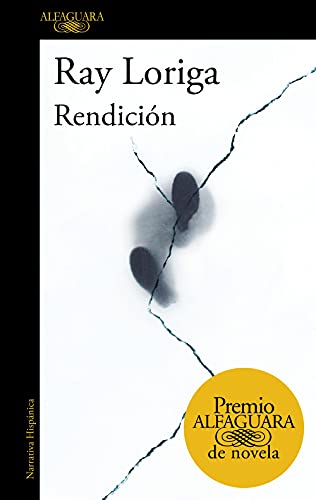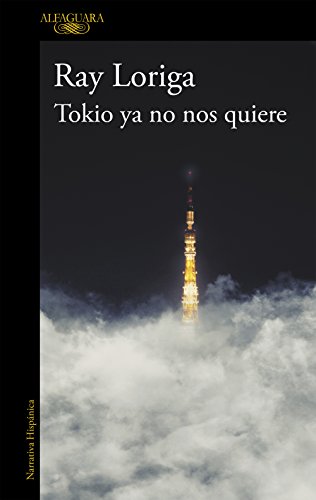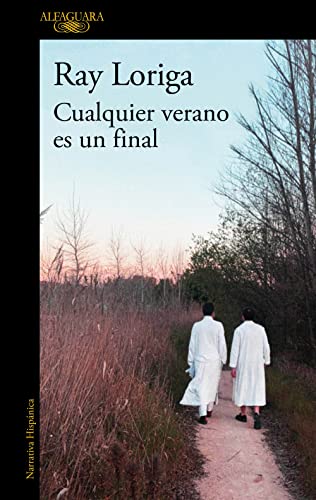Without reaching the point of disenchanted lyricism Charles Bukowski, one of the clearest reflections of dirty realism in Spain is Ray Loriga, at least in his beginnings as a writer, because Ray Loriga currently writes with greater formal sophistication without losing his critical will and his intention loaded with sarcasm. With which, dirty realism is a complementary label of the author in whose fertile field other authors in Spain continue to lavish themselves, such as Tomás Arranz with his novel The many, influenced in turn by the Cuban dirty realism of Pedro Juan Gutiérrez.
But as I say, the current Ray Loriga it's that perspective of dirty realism, which already has enough richness and creative interest but has been filled with large doses of writer's craft. Neither worse what he wrote before nor better what he wrote now. Everything goes with the tastes. But deep down it is a laudable evolution that is always appreciated because it implies evolution, experimentation, inquiry, restlessness and creative ambition.
And despite everything, the readers of Loriga from the beginning can always detect and enjoy the fundamental motives of the writer. The change of register or genre can be understood as a thematic or style renewal, but the soul of the writer is always there. And certainly the differential fact that makes you like an artist, that you tune in to him is more marked by that deep motivation that leaves its mark on each character and each scene, in the way of describing and even in the metaphors.
Top 3 recommended novels by Ray Loriga
Surrender
A new great novel, the most complete so far. The transparent city The characters in this story arrive at is the metaphor for so many dystopias that many other writers have imagined in light of the adverse circumstances that have occurred throughout history.
Perhaps dystopia comes to present itself to us as a present where everyone wonders how they got there. Wars are always a point of reference to raise that empty society, without values, dictatorial.
Between George Orwell y Huxley, with Kafka at the controls of the unreal or surreal setting. A married couple and a young man who cannot find his home and who has lost his speech make the painful journey to the transparent city. They long for their children, lost in the last war.
The mute young man, renamed Julio, may hide in his muteness the fear of expressing feelings or perhaps he is just waiting for his moment to speak. Strangers in the transparent city. The three characters assume their role as gray citizens indoctrinated by the corresponding authority.
The plot marks the unfathomable distance between the individual and the collective. Dignity as the only hope to remain oneself in the face of memory sweep, alienation and emptiness. An anguished certainty clings to the lives of the characters, but the endings are only written by oneself.
Literature in general, and this work in particular, provide a valuable sense that not everything has to end as planned, for better or for worse.
Tokyo doesn't love us anymore
One of the last novels of the author that can still be labeled under that Generation X label. A strange, intriguing, fascinating and even philosophical futuristic ramble that seems to give a psychedelic twist to the Huxley's Happy World.
Liberating chemistry, exogenous agents capable of modifying memory for the good of the drug user that frees him from guilt and remorse. To be happy you have to dehumanize, there is no other. It makes sense if we consider that the ultimate goal of the human is to be born, begin to breathe and consume himself in the same oxygen that gives him life.
The novel itself narrates the long journey from the United States to a distant Asian country, a novel road that really leads us through existentialist precepts about what we could be without memory. The trip is undertaken by a very particular guy hung up on drugs and given over to free love once AIDS has already been exterminated from the world.
The exit of this novel with science fiction foundations back in 1999 points to the typical disturbing sensation of the change of the millennium (something like the 2000 effect in the literary world) and the truth is that it is enjoyed in that transcendental exploration about the future, about the human condition, trauma, drugs and conscience ...
Any summer is an end
Melancholy can come when you are still young and, with the arrival of summer, you know that there will still be more. Nostalgia is the regret of summers already unrecoverable in one way or another. Between both sensations, a multitude of everyday but exceptional characters move because they open up in search of the beyond of the viscera, where the emotions of expired deadlines and moments that recede in a perhaps idealized past but always better than the past can inhabit. future. And yet it is also about second chances, crushes and redoubts of emotions that reach us even more intense when they are no longer expected...
Someone wants to die. He is no longer young, and he wonders what another day is for, no matter how privileged, fun and kind his life still is. Someone wants to love. He doesn't know for sure if they reciprocate him, if his feelings will be understood, if he even has the right to express them. someone travels Visit cities, beaches, bars, exotic parties, cabins by the water where you can spend the night drinking and laughing. Someone illustrates beautiful books and someone takes care of publishing them.
They work without haste, with mutual admiration, with a certain decadent sensation of existing in a world that is disappearing. Someone has had a serious health problem, gets up slowly, gropes his clothes and decides to take advantage of the second chance. Someone likes, awakens desire, is always passing through the lives of others, smiles, pays for dinner. Someone is someone else's best friend and favorite person. Someone wants to die.
Ray Loriga narrates the abysses of these characters, and composes a symphony about friendship, love and the end of youth. A novel that talks about death toasting life. A novel about summer that still remains to be enjoyed before winter arrives.
Other recommended books by Ray Loriga
He only talks about love
The feeling of defeat is one of the most fertile sources of inspiration for any creator. Absolutely nothing worthwhile comes out of the happiness that leads to creative innopia.
And the truth is that the feeling of defeat is very typical of each and every one of us, known mortals. The question is knowing how to get the most out of that defeatism that, paradoxically, is explosively creative.
This novel is an allegory at times fatalistic and sometimes glorifying of the frustrated creator. Sebastián has been abandoned by his partner, since the other person has discovered that he does not want to give up his days to that typical intellectual abyss of creative minds.
At least Sebastián believes that this is the best moment to give life to his particular Quixote, a guy named Ramón Alaya condemned to walk through the vague pages of a pathetic novel in the making.
And yet suddenly everything turns from his boring desk, in a particular orbit that will rule over the whole world. Of this novel you will find great detractors and many other delighted readers. Without considering for my part that it is his best work, I place it in third place ...




